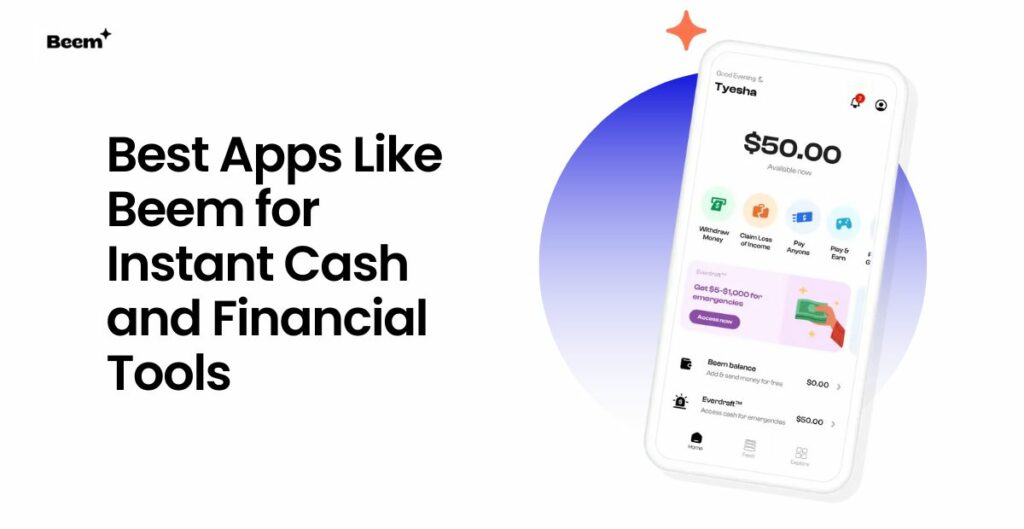Table of Contents
Wealth That Outlives Us
For many American families, ‘wealth’ isn’t just about living comfortably today. It’s about what you leave behind tomorrow. Generational wealth means giving your children and grandchildren a head start: money for education, a foundation for buying their own home, and the freedom to risk starting a business without being crushed by debt.
For generations, homeownership has been the cornerstone of that plan. Parents and grandparents scrimped and saved, often sacrificing vacations, luxuries, and sometimes even necessities, to get the keys to their own house. The house wasn’t just a shelter. It was security, stability, and most importantly, an asset that could be passed down.
Building Wealth Today
But in 2025, the question looks different. Buying a home has become harder than ever. Mortgage rates are hovering around 6.5%, home prices remain near record highs, and wages have not grown fast enough to keep pace. Renting, which for decades was seen as “throwing money away,” is often the more affordable option for working families today. And yet, renting doesn’t come with the built-in wealth-building mechanism of ownership.
So we are left with a complex dilemma: If you want to build generational wealth, is buying still the best or only option? Or can renting, paired with disciplined financial planning, become a viable path, too?
This guide explores that question in depth, examining history, economics, family life, and psychology to help you see how housing decisions in 2025 shape not just your future but also the future of your children and grandchildren.
Read related blog: How to Build Wealth With Side Hustle Earnings
Why Generational Wealth Matters
Before considering renting and buying, it’s worth pausing to understand why generational wealth matters so deeply. For many families, wealth isn’t about luxury but survival and opportunity. When parents pass down assets, their children inherit more than money; they inherit freedom. They start further ahead in life than they otherwise would.
A child who inherits even a modestly paid-off home doesn’t have to fight their way into homeownership with high interest rates and steep down payments. A student whose grandparents left them a savings account can graduate without life-crushing student loan debt. Generational wealth smooths out life’s harshest edges and opens doors that might otherwise stay closed.
Real estate has historically been one of the most powerful forms of generational wealth because:
- Homes appreciate over time.
- Mortgage payments build equity (ownership stake).
- Real estate is a tangible, usable asset — not just numbers in a bank account.
Historically, property ownership has been the most common and powerful form of generational wealth in the US. A home rises in value over decades, mortgage payments steadily reduce debt, and what’s left behind is both a financial and emotional inheritance.
That’s why, for many families, the rent vs. buy debate feels more than financial; it feels moral. They don’t just want to provide a home for themselves. They want to leave something behind.
Read related blog: Family Investing 101: How to Teach Kids About Money and Build Wealth Together
The Traditional Case for Buying a Home
For decades, the conventional wisdom was simple: buy a house as soon as possible. Every mortgage payment builds equity, your ownership stake, while property values tend to rise over time. Renting, by contrast, was framed as paying someone else’s mortgage with no return for yourself.
History supports this logic. Families who bought homes in the 1970s, 80s, or 90s often saw those homes double or triple in value over a generation. A modest $80,000 home in the early 1980s could easily be worth $300,000–$400,000 today. When those families paid off their mortgages, they had substantial assets to pass down.
The American Dream
For most of US history, the argument for buying was clear.
- Pay down your mortgage.
- Watch your property value rise.
- Leave the home (or the equity) to your children.
Homeownership also offered stability. Mortgage payments on a fixed-rate loan remained predictable, while rent could rise year after year. Growing up in a family-owned home often meant staying in the same school district, forming deeper community ties, and eventually inheriting a property as a place to live or a source of income.
This was the bedrock of the American Dream: work hard, buy a home, and leave it to your children. However, in 2025, will that model still work similarly?
Read related blog: Green Investing Guide: Build Wealth While Supporting a Sustainable Future
Why 2025 Is Different
The math has changed. With changing high mortgage rates, down payments, and new costs, the path to creating generational wealth looks different from just a few years ago.
High mortgage rates
Mortgage rates dipped under 3% in 2020 and 2021, but are now more than double that, sitting around 6.5%. That change alone adds hundreds of dollars to the average monthly payment. For a $350,000 home, the difference between a 3% and a 6.5% mortgage is nearly $700 monthly — a crushing gap for families already stretched thin.
Down payments
At the same time, home prices remain historically high. Even though growth has slowed, prices didn’t fall significantly after the pandemic boom. In many metros, affordability has worsened. A generation ago, the average home cost roughly three times the average household income. In 2025, that ratio is closer to six-to-one in many cities.
Wages vs. housing costs
Meanwhile, wages haven’t kept pace. Median household incomes have risen, but not fast enough to close the gap between what families earn and what homes cost. Add in student loan repayments, childcare expenses, and rising insurance premiums, and the down payment that once took five years to save may now take a decade or more.
This creates a two-tiered reality: families who bought or refinanced during the low-rate years of 2020–21 are sitting on enviable mortgages and growing equity. Families trying to buy now face steep costs that may prevent them from building wealth through ownership.
Read related blog: Robo-Advisors Explained: How to Use Them to Grow Wealth Automatically
Can Renting Build Generational Wealth?
This is the heart of the new debate. Renting has always been seen as wealth-draining — a monthly payment with nothing to show. And it’s true: renters don’t build equity, benefit from appreciation, or leave a physical property behind.
However, renting can still be part of a generational wealth strategy if paired with disciplined financial planning. Instead, money not spent on a mortgage, property taxes, and maintenance can be invested.
Take, for example, a family in Dallas. Buying a median-priced home might cost $2,400 a month, while renting a comparable property might cost $1,900. That $500 monthly difference, invested consistently in an index fund with a 6% average return, grows to over $500,000 in 30 years. If managed wisely, that money can be passed down as powerfully as a home.
The Psychological Challenge
The challenge is psychological. Equity in a home builds automatically with every mortgage payment. Investing rent savings requires constant discipline — most renters don’t or can’t follow through. Emergencies, unexpected expenses, and simple day-to-day living often consume the money that might have gone to investments.
This is where tools like Beem’s Everdraft™ Instant Cash matter. By cushioning emergencies, Beem helps renters avoid dipping into their savings or halting their investment contributions when surprises hit. It keeps the plan intact; that consistency turns savings into generational wealth over decades.
The Generational Divide
Interest rates and housing costs are shaping today’s buyers and the future of generational wealth transfer.
Boomers (50s–70s)
Baby Boomers who bought decades ago are sitting on homes worth several times their original purchase price, many of which are now paid off. They will pass significant wealth to their children and grandchildren.
Gen X & Millennials (30s–50s)
Gen X and older Millennials who bought in the 2000s or refinanced during the low-rate pandemic years are also in relatively strong positions. They may still carry mortgages, but benefit from low rates and locked-in affordability.
Gen Z (under 30)
Younger Millennials and Gen Z, however, are in a different position. Entering the housing market at today’s prices and rates is a greater challenge. Many are locked out of ownership altogether. This generational divide threatens to widen the wealth gap in America: some families will inherit paid-off homes, while others will inherit nothing but memories of rent payments.
Renting vs. Buying in Different Economic Conditions
When Renting Helps Wealth-Building
- High mortgage rates (like today).
- Cities where rent is much cheaper than owning (e.g., San Jose, New York).
- Families who invest the rent savings consistently.
When Buying Helps Wealth-Building
- Stable or falling interest rates.
- Affordable markets where owning costs nearly the same as renting (e.g., Chicago, Cleveland).
- Families planning to stay 10+ years and ride out cycles.
Generational wealth depends on “rent or buy,” timing, discipline, and location.
The “Lock-In Effect” and Future Wealth Gaps
A unique 2025 phenomenon is the “lock-in effect.” Millions of homeowners refinanced at 2–3% rates during 2020–21. They now hold golden mortgages and have little incentive to sell. Their children may inherit homes with low carrying costs and massive equity.
Meanwhile, younger households trying to buy today face 6.5% rates and sky-high prices. That means the wealth gap between those who already own and those trying to enter the market is growing wider.
This divide will echo across generations.
Read related blog: How Beem Pass Helps Close the Gender Wealth Gap: Financial Empowerment for Women
Alternatives Emerging in 2025
The traditional binary of rent vs. buy is evolving. New models are helping families build wealth in unconventional ways:
- Rent-to-Own Programs: Allow renters to build equity while leasing.
- Shared Equity Models: Investors partner with buyers, splitting ownership and future appreciation.
- Co-Living & Multigenerational Homes: Families pooling resources to buy or live together, reducing costs and passing shared assets.
- Fintech Tools: Apps (like Beem) that help renters save, invest, and cover financial gaps, ensuring consistency in wealth-building.
In short, while buying a home remains the most straightforward path to generational wealth, renting no longer has to mean missing out entirely.
The Emotional Weight of Housing and Legacy
Housing decisions are never just about numbers. They’re about identity, pride, and legacy. Owning a home still symbolizes success and permanence. For many parents, leaving behind a house feels like a concrete way of proving they built something that lasts.
But wealth is more than a deed. Teaching children financial literacy, leaving them a savings account, or modeling disciplined investing can be as powerful as leaving behind four walls. In 2025, the definition of generational wealth is expanding. It’s not just about what you leave, but about what you teach and how you prepare your family for financial resilience.
Read related blog: How to Afford Housing as a Flight Attendant
How Beem Helps Families Stay on Track
Whether through buying or renting, generational wealth depends on consistency, like saving, investing, and staying afloat through life’s financial surprises. But emergencies can derail even the best-laid plans.
- Renters: Beem’s Everdraft™ Instant Cash can help with sudden rent hikes, moving deposits, or unexpected bills, keeping savings intact.
- Buyers: Beem can cover surprise home repairs, insurance spikes, or closing cost overruns without draining your equity-building efforts.
A sudden rent hike, a moving deposit, or an overdue bill can wipe out savings for renters. For buyers, an unexpected repair, higher insurance premiums, or closing cost overruns can force them to dip into wealth-building funds.
Beem’s Everdraft™ acts as a stabilizer. It provides up to $1,000 without interest, credit checks, or hidden fees, helping families bridge financial gaps without derailing long-term goals. By protecting savings and investments from short-term shocks, Beem helps families stay on track to build and eventually pass down wealth.
Read related blog: How to Build Wealth with Just $5 a Day
Redefining Generational Wealth in 2025
For Thewer, the answer was simple: buy a home, build equity, and pass it on. In 2025, the truth is more complicated. Buying remains a powerful way to create generational wealth, but it’s no longer the only way. Renting can also create a legacy if paired with disciplined saving and investing.
What matters most isn’t just whether you buy or rent, it’s whether you’re preparing, protecting, and planning for the future. Generational wealth is about giving your children stability, choices, and opportunities. Whether that’s a house, a trust account, or an investment portfolio, the goal is the same: leaving the next generation better off.
With Beem by your side, you don’t have to choose between stability today and wealth tomorrow. You can do both, and that’s the true foundation of generational wealth. Download the app now!
FAQs on Building Generational Wealth: Buy or Rent?
Is buying still the best way to build generational wealth?
Buying remains a strong pathway because it combines appreciation and forced savings. But in 2025, affordability challenges make it inaccessible for many. Renting plus disciplined investing can be an alternative.
Can renters realistically build generational wealth?
Yes, but only if they consistently invest the difference between rent and ownership costs. Without discipline, renters risk spending that margin instead of saving it.
Why does generational wealth matter so much?
Because it changes the starting line for children, families who inherit wealth begin adulthood with more freedom and fewer burdens, creating opportunities that compound across generations.
How do high interest rates affect generational wealth?
They make it harder for new buyers to enter the market, widening the gap between those who already own and those who are still renting. This threatens to deepen generational inequality.
Where does Beem fit into this Buying vs Renting?
Beem helps families protect their long-term wealth-building strategies from short-term financial shocks. It offers up to $1000 for emergencies, with no interest, credit checks, due dates, or income restrictions. By cushioning you for emergencies, the Beem app ensures that savings and investments keep growing, the real engine of generational wealth.














































